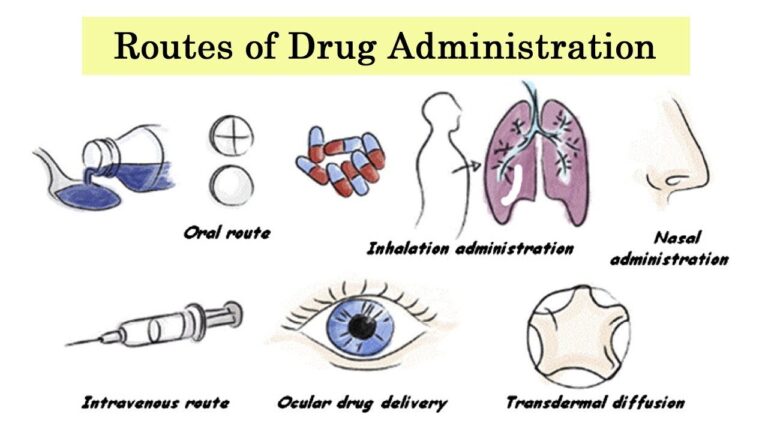Health Benefits of Deworming Regularly for Adults
Deworming is the process of eliminating worms and other parasites from the body. It is typically recommended for children, as they are more susceptible to infection due to their behavior and environment. However, adults can also benefit from deworming, especially if they are at risk of infection.
Intestinal worms, such as roundworms, hookworms, and tapeworms, are among the most common types of Worms that infect humans. These parasitic worms can be transmitted through contaminated food, water, or soil, or by coming into contact with infected animals. Symptoms of a worm infection may include abdominal pain, bloating, diarrhea, fatigue, and malnutrition.
If you are concerned about the possibility of a worm infection, it is important to speak with a healthcare provider for proper diagnosis and treatment. They can determine the most appropriate deworming strategy based on your individual needs and risk factors.
Regular deworming can help eliminate worms and prevent re-infection. This is one of the Benefits of deworming regularly for adults. It can also provide a range of health benefits, in this article, we will be discussing the health benefits of deworming Regularly for Adults. Deworming is the process of eliminating worms and other parasites from the body.
It is typically recommended for children, as they are more susceptible to infection due to their behavior and environment. We will not just look at the Health Benefits of Deworming Regularly for Adults, but also at factors that the frequency of deworming.

Health Benefits of Deworming Regularly for Adults
There are Health Benefits of Deworming Regularly for Adults. Deworming is the process of eliminating worms and other parasites from the body. It is typically recommended for children, as they are more susceptible to infection due to their behavior and environment.
However, adults can also benefit from deworming, especially if they are at risk of infection. Some potential benefits of deworming regularly for adults include:
Improved digestion
Intestinal worms can cause irritation and inflammation in the digestive system, leading to symptoms such as abdominal pain, bloating, and diarrhea. By eliminating worms, deworming can help improve digestion and reduce these symptoms.
Increased nutrient absorption
Worms can consume nutrients from the food we eat, leading to malnutrition. They can also interfere with the body’s ability to absorb nutrients from food. By eliminating worms, deworming can improve nutrient absorption and help prevent malnutrition.
Boosted immune system
Worms can weaken the immune system by consuming nutrients and causing inflammation. Deworming can help improve the functioning of the immune system and reduce the risk of infection. This is one of the Benefits of Deworming Regularly for Adults.
Enhanced physical and mental well-being
The symptoms of a worm infection, such as abdominal pain and malnutrition, can have a negative impact on physical and mental well-being. By eliminating worms, deworming can improve overall health and well-being. This is one of the Benefits of Deworming Regularly for Adults.
Reduced risk of complication
Some types of worms can cause serious complications if left untreated. For example, intestinal worms can migrate to other parts of the body and cause organ damage, while liver flukes can cause liver damage. Regular deworming can help reduce the risk of these and other complications.
It is important to note that deworming is not necessary for everyone. The decision to deworm should be based on an individual’s risk of infection and the presence of any symptoms. If you are concerned about the possibility of a worm infection, it is best to speak with a healthcare provider for proper diagnosis and treatment.
How often should an adult deworm regularly?
The frequency of deworming for adults depends on several factors, including the type of worm infection, the severity of the infection, and the individual’s risk of re-infection. To maximize the Health Benefits of Deworming Regularly for Adults, the frequency needs to be considered and utilized as well. Some general guidelines for deworming in adults include:
If you are at high risk of infection: If you work in a high-risk occupation (such as farming or food handling), have traveled to an area with a high prevalence of worm infections, or have a compromised immune system, you may need to deworm more frequently. Your healthcare provider can recommend the appropriate frequency based on your individual circumstances.
If you have a confirmed worm infection: If you have been diagnosed with a worm infection, your healthcare provider will recommend a course of treatment, which may involve one or more doses of deworming medication. The frequency of treatment will depend on the type of worm infection and the severity of the infection.
Note: If you are otherwise healthy and not at high risk of infection. If you are not at high risk of infection and do not have any symptoms of a worm infection, deworming may not be necessary.
It is important to note that deworming is not necessary for everyone. The decision to deworm should be based on an individual’s risk of infection and the presence of any symptoms.
If you are concerned about the possibility of a worm infection, it is best to speak with a healthcare provider for proper diagnosis and treatment. They can recommend the appropriate frequency of deworming based on your individual needs.
Conclusion
We have discussed the Health Benefits of Deworming Regularly for Adults. Deworming is a useful strategy for eliminating worms and other parasites from the body. While it is typically recommended for children, adults can also benefit from deworming, especially if they are at risk of infection.
Some potential health benefits of deworming for adults include improved digestion, increased nutrient absorption, a boosted immune system, and enhanced physical and mental well-being. Regular deworming can also help reduce the risk of complications, such as organ damage or malnutrition.
If you are concerned about the possibility of a worm infection, it is important to speak with a healthcare provider for proper diagnosis and treatment. They can determine the most appropriate deworming strategy based on your individual needs and risk factors.




![Top 10 Best Health Insurance Companies In Nigeria ([year]) Health Insurance Companies In Nigeria](https://eucarlpharmacy.com/wp-content/uploads/2022/11/Health-Insurance-Companies-In-Nigeria-768x513.jpg)

